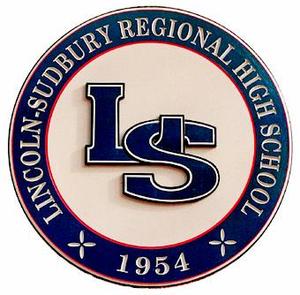Readers may submit photos for consideration for Lincoln Through the Lens by emailing them to lincolnsquirrelnews@gmail.com. If your photo is published, you’ll receive credit in the Squirrel. Photos must be taken in Lincoln and include the date, location, and names of any people who are identifiable in the photo. Previously published photos can be viewed on the Lincoln Through the Lens page of the Lincoln Squirrel.
Obituary: Setha Olson, 87
Setha G. Olson of Lincoln, formerly of Lexington, passed away on Jan. 13, 2017, leaving behind her husband of nearly 60 years, Eric Olson; her four children, Matt, Margaret, Sigrid and Charles Olson; and four grandchildren, Katherine and Erik Svetlichny, Benjamin and Peter Price-Olson.
From the day she was born, on June 18, 1929, Setha was always fiercely independent and highly intelligent. She graduated Phi Beta Kappa from Swarthmore College with a B.A. in chemistry in 1951. She went to work as a polymer research chemist for Hercules Powder Co., registering many patents in the course of her work. She developed a rubber related to the one used in Super Balls and other toys, marveling that the bouncy polymers had finally found a commercial use.
After marrying Eric Olson, Setha left her job to raise four children and continued her interest in science. She was an active member of the League of Women Voters and was a leader in finding new methods of state financing for education, doing the mathematical analysis for their effort. She was an active advocate for services to the intellectually disabled and people with autism, helping to enact Chapter 766, the Massachusetts law for the education of people with autism, as well as later laws for the provision of services to the intellectually disabled.
When her children were in their teens, Setha returned to her chemistry career, working in microphotolithography for GCA Corp., a manufacturer of semiconductor equipment. She became a well-known figure in the field throughout the world. Upon retirement, she traveled extensively, visiting the Galapagos, Antarctica and Peru, trekking in the Himalayas and following the Silk Road. She will be greatly missed.
A private family funeral service will be held followed by interment at Westview Cemetery in Lexington. In lieu of flowers, donations in her memory may be made to the Lurie Center for Autism.
Corrections and additions
 In the January 17 article about the Winter Carnival, two events were listed under the wrong day. The PTO Bingo Night and the Multi-generational Singalong are on Friday, Jan. 27, not Saturday.
In the January 17 article about the Winter Carnival, two events were listed under the wrong day. The PTO Bingo Night and the Multi-generational Singalong are on Friday, Jan. 27, not Saturday.- In the January 17 News Acorns, an item describing a January 26 event on civil disobedience with Jason and Jessica Packineau omitted one of the speakers. Jeffrey S. Cramer, Curator of Collections at Walden Woods Project and Thoreau, will speak about civil disobedience and how it relates to us today.
- The Council on Aging has announced a new time for one of its January activities and a new activity. “World Hand Drumming for Fun and Well-being” has been rescheduled to Tuesday, Jan. 24 at 9:30 a.m. Jai Kaur (Annamaria San Antonio) will offer—as a gift or by donation—”Therapeutic Mini-Massage” on Friday, Jan. 27 from 11 a.m. to 1 p.m. in Bemis Hall.
The articles and related calendar events have been updated to reflect these changes.
News acorns
 Inauguration Day meditation
Inauguration Day meditation
The Lincoln Meditation Group will hold a special sitting on Friday, Jan. 20 from 11:30 a.m. to 12:30 p.m. in the Lincoln Public Library’s Tarbell Room for the well-being of all people, the environment and our country. We will sit in silence, read a poem or two, and offer metta (prayers) for peace for all beings. Everyone is invited.
Talk on civil disobedience by Standing Rock visitors
Lincoln residents Jason and Jessica Packineau will lead a discussion about their recent activities at the Standing Rock in North Dakota and give a talk titled “What Role Does Civil Disobedience Play in Modern-day America?” and Jeffrey S. Cramer, Curator of Collections at Walden Woods Project and Thoreau, will speak about civil disobedience and how it relates to us today.]on Thursday, Jan. 26 at 7:30 p.m. in the Lincoln Public Library. This lecture is part of the Thoreau Bicentennial Statewide Read Program. In celebration of the 200th anniversary of Henry David Thoreau’s birth.
Film screening to benefit girls’ school in Afghanistan
Students Together Empowering Women, a club at Lincoln-Sudbury Regional High School, will host a viewing of the documentary What Tomorrow Brings on Tuesday, Jan. 31 at 7 p.m. in the L-S auditorium. The film tells the story of Razia’s Ray of Hope Foundation in Afghanistan. The foundation and the school it supports embrace and promote education as the key to positive, peaceful change for current and future generations, empowering Afghan girls and young women to work toward bright futures in their own villages and beyond. Tickets are $8 for students and $15 for adults, and all proceeds will be donated to the Razia’s Ray of Hope Foundation.
Adult ed and test prep classes at L-S
Registration is now open for adult and teen classes on test prep, interviewing and completing college applications as well as creative arts, fitness, home and garden, and financial matters. Click here for the catalog.
Climate change film at St. Anne’s
There will be a showing of the film Merchants of Doubt at St. Anne’s Episcopal Church on Tuesday, Jan. 31 as part of the church’s ongoing series of films on climate justice. This film examines the role of the fossil fuel industry in distorting and denying the science on climate change over several decades in order to prevent meaningful regulation of carbon emissions. It will help give a perspective on the choices the incoming administration is making for key cabinet posts like EPA and the Secretary of State.
A simple vegetarian soup supper will be served at 6:30 p.m. and the film will begin at 7 p.m. Donations will be accepted to help with the cost of screening rights.
Community discussion on book by Ta-Nehisi Coates
Come to a Lincoln/METCO community book discussion about Between the World and Me by Ta-Nehisi Coates on Wednesday, Feb. 1 from 6-8:30 p.m. in the Brooks gym. The discussion will be facilitated by Lincoln School English teachers Hillary Skelton and Jenny Nam, as well as Jaime Moody, the school’s METCO academic advisor. The event will begin at 6 p.m. with dinner, but feel free to come anytime, as there will be various points at which late-comers can easily join the discussion. Please pre-register on the Lincoln METCO website.
Winter Carnival begins next Friday
Lincoln’s annual Winter Carnival kicks off on Friday, Jan. 27 with a showing of movie The Last Waltz and wraps up on Sunday, Jan. 27 with “CSI Lincoln: Tales from Police Blotters Past.” See this list or the Lincoln Squirrel calendar for a full list of activities.
Weekend-long activities
Snow Sculpture Contest
Design and build a winter sculpture in your own front yard. Call to register with Parks & Recreation by 5 p.m. on Saturday (781 259-0784). Judging will take place on Sunday morning with awards to the best in show and superlative awards to all, so get creative!
Discover Drumlin Farm in the Winter
Visit our animals in their winter homes, look for wildlife tracks or other signs of animals in the snow, or check out our feeders at our wildlife blind by the deer enclosure. Drop-in naturalist programs take place on Saturday and Sunday at 10 a.m., 11:30 a.m. and 2:30 p.m.. Free admission for residents. Call 781-259-2200 for more information.
Friday, Jan. 27
Generational Sing-Along for Kids and Seniors
3:30 p.m., Bemis Hall
The LEAP After-School Program, the Lincoln Council on Aging, and Magic Garden Children’s Center invite residents of all ages to enjoy a free multigenerational Concert and Sing-Along! The program will include performances from each of the organizations and an audience sing-along at the end.
Lincoln PTO Family Bingo Night
5:30–7:30 p.m., Brooks Gym
Come celebrate 10 years of Family Bingo Night with even more chances to win! Prizes awarded for each winning bingo board, awesome raffle prizes and free give-aways. Pizza dinner sales start at 5:30 p.m., with snacks and drinks available for purchase all night. Open to all. Free entry. Bingo cards are $5 for a 20-game multi-pack; raffle tickets are $1 each, six for $5, and 15 for $10.
FoMA Movie Night: Scorsese’s The Last Waltz
7-9 p.m. Bemis Hall
Step back in time to enjoy a defining rock event, the 1976 farewell concert of seminal rock group The Band. The film captures the aura that includes guest appearances by Bob Dylan, Paul Butterfield, Neil Young, Emmylou Harris, Eric Clapton and more. The New Yorker calls it “the most beautiful rock film ever made.”
Saturday, Jan. 28
Girl Scout Pancake Breakfast
8-11 a.m., Stone Church
Start your Saturday off with some delicious pancakes with real maple syrup. $5 children under 12, $10 ages 12+, $30 family max. Plain, blueberry, chocolate chip pancakes with maple syrup along with coffee, tea, orange juice, and fruit. Face painting and crafts for kids, and Girl Scout cookies will be on sale.
Snow Shoe Tours
10 a.m. and 12:30 p.m., deCordova Sculpture Park and Museum
Enjoy nature and art in winter and discover a fun and active way to explore the Sculpture Park. Tours are led by a deCordova Museum Guide and a trained EMS instructor. Visit decordova.org/calendar to purchase tickets. Adults: $15 for members or $25 for non-members plus $12 for snowshoe rental. Youths 8-18: $12 for members, $20 for non-members plus $12 for snowshoe rental.
Magic Garden Preschool Fun
11 a.m. to 1 p.m., Magic Garden Children’s Center
Come visit with friends and neighbors and enjoy carnival games, and arts and crafts activities. Located in the Hartwell building on the Lincoln School campus.
Community Skating and Bonfire
Open skating, 12-1:30 p.m.; pick-up hockey, 1:30-3 p.m.
Cemetery Pond, Lexington Road
Enjoy skating, hot chocolate, and toasted marshmallows by the campfire. Bring your skates. Check www.lincolnrec.com for weather updates.
Lincoln Holistic Wellness Fair
Noon to 3 p.m., Bemis Hall
Lincoln wellness practitioners are hosting a drop-in “clinic” to help you learn about alternative/complementary medicine while experiencing a respite from cold, stress, or illness. Receive mini-treatments/assessments in acupuncture, therapeutic massage, foot reflexology, holistic nutrition, yoga, therapeutic touch, dowsing, Alexander technique and more. Healthy warm teas, muffins and treats will be available. Contact Jai Kaur Annamaria at asanajai@verizon.net with questions.
LFA Energy Blaster
3-5 p.m., Brooks Gym
Join your friends (and their parents) and burn some energy! Jump in a bounce house, create some art and try your skill at a variety of fun indoor games. Bring cash to enjoy healthy snacks. Fun and prizes for all! Free for Lincoln Family Association ’17 members; otherwise $10 per child. An LFA membership or renewal at the door includes admission, or renew now at www.lincfam.org.
Acoustic Coffeehouse
7-10 p.m., Bemis Hall
Lincoln’s annual night to showcase local musicians and performers. Coffee and desserts will be served. Seating reservations can be made at www.lincolnrec.com. Reservation for a table of eight is $160; general admission is $10. Doors open at 7 p.m. Seasoned performers and fresh talent are lined up, so come join us for a treasured community event!
Sunday, Jan. 29
Lindsay and Her Puppet Pals
2-3 p.m., Lincoln Public Library
Lindsay Aucella’s highly interactive, comedic performances feature larger-than-life, hand-crafted puppets to charm even the most timid audience members and provide memorable characters for positive short stories and skits. All ages.
Make Your Own Elf/Fairy Garden
10:30 a.m. to noon, Carriage House at deCordova
The title says it all… a great new event for children, so come join us! Sponsored by the Lincoln Nursery School and deCordova Sculpture Park and Museum.
CSI Lincoln: Tales From Police Blotters Past
3-5 p.m., Bemis Hall
Don’t miss this chance to hear fascinating stories about dramatic events in Lincoln, such as the famous unsolved case of a missing woman and an infamous drug raid, as told by Chiefs Arena, Bowles, Mooney and Kennedy. Presented by the Lincoln Historical Society.
L-S invites community members to give career talks
 Lincoln-Sudbury Regional High School is looking for community members to talk to students this spring about their career paths and the educational and professional requirements for their respective fields.
Lincoln-Sudbury Regional High School is looking for community members to talk to students this spring about their career paths and the educational and professional requirements for their respective fields.
The 2016-17 speaker series began in November and has hosted speakers who work in engineering, mental health, banking, finance, alternative medicine, entrepreneurship and media/TV/film. The sessions occur in the Career Center at L-S during the Friday lunch block from 11 a.m. to 12:30 p.m.
“Students stay for as long as they can and they have the opportunity to ask questions that will hopefully clarify the skills, values, and temperament needed to be successful in a given field,” said L-S Vocational Coordinator Andrea Falzone. “Our hope is that these sessions will expand students’ awareness of the wide range of career opportunities that exist.” Speakers do not need to have a current or former student at the high school.
Future speakers and tentative dates are below. For more information, contact Falzone at andrea_falzone@lsrhs.net.
- January 27 — Sheila Webber, organizational behavior/industrial psychology
- February 3 — Sheryl Kelleher, nurse practitioner and professor of nursing
- February 10 — Dawn Solowey, lawyer
- February 17 — Jinny Van Deusen, marketing/communications/development/nonprofits
- March 3 — Sarah Davis, media/journalism/TV
- March 10 — Alan Greenblatt, software development/entrepreneurship
- March 17 — Lincoln Police Chief Kevin Kennedy, criminal justice
- March 24 — Samantha Truex, biotech
- March 31 — Marcia Ackley, civil engineering
- April 7 — Jeanne Rosier-Smith, artist
Town to grapple once again with future of school project
At Town Meeting in March, residents will have yet another chance to chart a course for a multimillion-dollar school project—going it alone, or seeking partial state funding for the fifth time. But barring a major crisis at the Lincoln School, state funding is looking increasingly unlikely as the competition for grants gets fiercer by the year.
Lincoln won a $21 million grant from the Massachusetts School Building Authority in 2009, contingent on a two-thirds majority approval from residents at Town Meeting—but that eventual 2012 vote fell short. The town has reapplied three times since then and been turned down each time. Just before Christmas, officials learned that the town was again denied entry into the state school funding pipeline.
As Lincoln officials are now realizing, the 2009 MSBA approval was at least partly a matter of luck because the MSBA as a funding entity had been created only the year before, and Lincoln was ready to pounce because it had recently done a facilities study and thus happened to have its “ducks in a row” more than many competing towns, School Committee Chair Jennifer Glass said at the January 9 Board of Selectmen meeting.
Glass and other Lincoln officials learned through recent conversations with the MSBA that nowadays, there is a “very high bar” for getting state funding approval. Most schools that were invited into the funding pipeline last year have a major structural deficiency to the extent that the building is uninhabitable (for example, a collapsed roof or flooding in the entire building), severe overcrowding, or a threatened loss of accreditation. This is something that usually happens only to high schools, Glass noted, and it was a significant factor in Minuteman High School getting its $44 million state pledge last year.
Each year, the MSBA evaluates a new set of applications; there is no waiting list or preference for schools like Lincoln’s that have previously won approval. “It’s a clean slate every year,” Glass said. “Our applications are very through and they understand our needs… we haven’t done anything wrong since [2009].”
Glass asked the selectmen to hold spots for two Town Meeting warrant questions: whether to reapply for MSBA funding, and whether to begin pursuing a town-funded project by spending $750,000 appropriated by voters in 2015 on a feasibility study. Theoretically, the town could do both; “we’re welcome to spend $750,000 of our own money and reapply [to the MSBA, but] if we were invited in, that feasibility study would be put on the shelf and we would start again,” since the state would require a newer one, Glass said.
Performing the feasibility study “does not commit us to any certain project or dollar amount,” Glass said. The final study would have to focus on one design for the school, but this time, there could be the “missing step [where we] narrow the choice down with a lot of public input,” Selectmen Peter Braun said. One reason cited for the 2012 defeat is that residents did not have enough say about the proposed project’s building and campus design, and many objected to the proposal for compromising the circular central ballfield.
“We need to put all the choices out there and let the people tell us,” Brain said.
Beginning with a multi-board meeting on Monday, Jan. 30, there will be a series of public conversations to consider the town’s options and to understand the choices in the context of Lincoln’s priorities and finances. These conversations will be ongoing; everyone’s input and questions are needed, and residents are encouraged to attend as many sessions as possible.
The schedule is as follows:
- January 30 — Multi-board meeting, 7 p.m., Brooks Gym. This will be a joint meeting of the School Committee, Board of Selectmen, Finance Committee and Capital Planning Committee.
- February 10 — Council on Aging public forum, , 12:30 p.m., Bemis Hall. Superintendent Becky McFall and School Committee Chair Jennifer Glass will discuss the Town Meeting warrant articles related to a building project, and give an overview of the FY18 school operating budget. In addition, Town Administrator Tim Higgins will give an overview of the FY18 town budget.
- March 8 — Multi-board public forum, 7 p.m., location TBD — Hosted by the School Committee, Board of Selectmen, Finance Committee and Capital Planning Committee.
- March 17 — Council on Aging public forum, 12:30 p.m., Bemis Hall. Superintendent Becky McFall and School Committee Chair Jennifer Glass will discuss the Town Meeting warrant articles related to a building project.
Letter to the editor: state should spend 1% on nature
To the editor:
Last spring on WGBH radio, Gov. Charlie Baker called the state’s park system a “really big deal” and said there was “no question” that over the past decade “the state’s disinvested in this stuff.” He then reiterated his campaign promise to dedicate 1 percent of the overall state budget to the environment. “We’re going to get there. It’s going to take a few years,” he said. This month he files his third budget, and it is time “to get there.”
There is little question that Massachusetts has a revenue problem, not a spending problem, and the nature of Massachusetts is short-changed because of it. Of this year’s $40 billion state budget, only 0.6 percent is devoted to environmental programs—programs like the establishment and operation of state forests and parks, along with programs that protect the air we breathe; the water we drink; and the lands we live, work and play on.
Spending on the environment needs to be increased to no less than 1 percent of the overall state budget, especially as the White House and Congress prepare to cut spending on America’s environmental well-being. The last time we spent 1 percent on nature was in 2009. And even though he promised to achieve to that 1 percent, last year Governor Baker actually cut environmental spending by 7 percent compared to the previous year.
Budget cuts are made for two reasons: first, in preparing the budget and figuring out how much they will have to spend, the legislature makes overly optimistic projections on what will be available through tax revenues throughout the year. When the money fails to come in, shortfalls arise with environmental line-items often most vulnerable.
Second, once they imagine how much money will be available, the legislature drafts a budget based on their revenue projections and then employs gimmicks to patch it together. They count things such as funds set aside for rainy-day emergencies, delaying on-time payment of bills, selling of state property, and state pensions and retiree health care funds.
The legislature then submits to the governor a so-called balanced budget with a built-in structural deficit. The dance continues with the governor then vetoing certain sections of the legislature’s budget, the legislature then overrides those vetoes, and the governor once again cuts budget items for his agencies to reflect a shortfall in revenue income.
The second reason environmental and other basic programs are underfunded is because of a lack of actual revenue. Revenues are not keeping up with costs. We are not over-spending and we have not had any spending increases. As the Massachusetts Budget and Policy Center points out, general expenditures are consistently at 12 cents for every dollar the state collects. And that’s where they have been since the late 1980s.
The problem are tax cuts. Cutting programs is always part of solving state financial problems. But we have to realize that we do not do more with less, as the voters demand, we do less with less. Those cuts started in a big way at the turn of the millennium when, in a ballot initiative, Bay Staters voted to cut the state income tax rate from 5.95 percent to 5 percent. That translates into an annual $2 billion reduction in what the state can spend on the public’s health, safety and well-being.
The Massachusetts Taxpayers Foundation has shown that the gap between projected revenue and spending to maintain current services is $800 million, so the problem is on the tax side. Before the 2000 initiative, the state was taking in 7 cents on every dollar earned—now it’s around 6 cents.
Last year, the governor’s fiscal year 2017 budget recommended $200 million for environment and recreation programs, a cut of $14 million below the FY 2016 budget. Those cuts have to stop and the environmental budget must be restored. Ironically, it is one of the smallest parts of the state budget that effects every resident of the Commonwealth and is often the first to be cut. It is time for Beacon Hill to get back to devoting 1 percent to the nature of Massachusetts in the upcoming budget.
Sincerely,
Jack Clarke
Director of public policy and government relations, Mass Audubon
Letters to the editor must be signed with the writer’s name and street address and sent via email to lincolnsquirrelnews@gmail.com. Letters will be edited for punctuation, spelling, style, etc., and will be published at the discretion of the editor. Letters containing personal attacks, errors of fact or other inappropriate material will not be published.
News acorns
Hanscom updates at next HATS meeting
At the next HATS (Hanscom Area Towns Committee) meeting on Thursday, Jan. 26 at 7:30 p.m. in the Town Office Building, the group will get its annual update from the executive director of the Massachusetts Military Assets Task Force regarding Hanscom Air Force Base and other matters, along with an update regarding Hanscom and related activities from Adam Freudberg, senior advisor for innovation and collaboration for base’s Office of the Chief Technology. Save the date for the February 23 meeting, which will feature presentations by Lincoln Lab and MITRE.
Send in updates for Lincoln Directory
 All residents recently received a yellow card with information about updating the Lincoln Directory, which is compiled by the Friends of the Lincoln Library biennially and contains the telephone numbers of residents, local businesses, town offices, and the “Healthy Communities” list of health resources. Now is the time for new residents to add their names and phone numbers, other residents to update their information, businesses to take advantage of the advertising space.
All residents recently received a yellow card with information about updating the Lincoln Directory, which is compiled by the Friends of the Lincoln Library biennially and contains the telephone numbers of residents, local businesses, town offices, and the “Healthy Communities” list of health resources. Now is the time for new residents to add their names and phone numbers, other residents to update their information, businesses to take advantage of the advertising space.
“Lincolnites love the small-town feel of the book,” says Julie Brogan, member of the Friends of the Lincoln Library.
Nonprofits as well as businesses can benefit from advertising in the directory. In the previous edition, the Domestic Violence Services Network used advertising space to increase its visibility as a community resource.
Directories are mailed free to each household in Lincoln. Those wishing to volunteer or advertise may email LincolnPhoneBook@gmail.com.
News acorns
Talk on winter and gypsy moths
The outbreaks of gypsy moths in Massachusetts have been building for several years, and 2016 saw the largest in 35 years. Hear about the progress being made with biological controls and get an update on the spread of these insects in New England from Joe Elkinton, professor of entomology in the Department of Environmental Conservation at UMass-Amherst, on Wednesday, Jan. 18 at 7:30 p.m. in Bemis Hall. Elkinton’s lab researces population dynamics and biological control of invasive forest insects, with a current focus on biological control and population dynamics of the winter moth, hemlock woolly adelgid and black oak gall wasp. Anyone with questions may contact Jane at llct@lincolnconservation.org or 781-259-9251. The event is free and open to all.
Bus ride offered to Boston Women’s March
The Lincoln Democratic Town Committee is organizing a bus to take marchers to and from the Boston Women’s March for America on Saturday, Jan. 21. The march lasts from 11 a.m. to 3 p.m. and involves a one-mile walk, speakers and a program. A map and more information are available here. The bus will leave the Smith School parking lot for Boston Common promptly at 10 a.m. on Saturday morning and return by 4 p.m. Seats cost $15 and are available on a first-come, first-served basis. There is space for 30, and several seats are already taken, so if you want to reserve a seat, email Barbara Slayter at bslayter@comcast.net as soon as possible. Checks may made out to the Lincoln Democratic Town Committee and mailed to Barbara Slayter, P. O. Box 6337, Lincoln MA 01773.
Extended library hours for L-S students
The Lincoln Public Library will be open for extended study hours for Lincoln-Sudbury High School students on Thursday, Jan. 19 and Monday, Jan. 23. The library will be open until 10 p.m. and will provide snacks and a safe supervised place to study, but will be closed for all other services.





